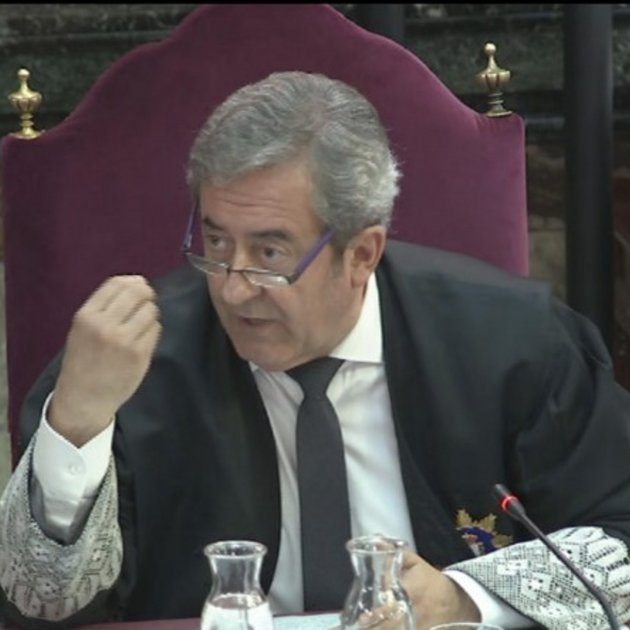A senior Spanish prosecutor, Javier Zaragoza, has said in a newspaper opinion article that Belgian justice's decision to deny the extradition of former Catalan minister Lluís Puig was "arbitrary and unfounded". Zaragoza, a member of the Supreme Court public prosecution team, says the ruling rejecting the European arrest warrant against Puig is "legally unsustainable", and includes "unusual" and "unacceptable" reasoning. He even uses a bullfighting image, comparing Belgian justice's action to the thrusting of a "death lance" into European judicial cooperation.
The prosecutor also rails against the Belgian judge's decision to base his sentence on the findings of the United Nations Working Group on Arbitrary Detention, which for Zaragoza is a "simple opinion of a group of experts who were hired ad hoc by the defence team".
Exiled Catalan politician Lluís Puig the day that his extradition was denied, in Brussels / ACN
United Nations report
Unlike the Belgian judge and several resolutions of the European Court of Human Rights in Strasbourg - which refuses to admit cases if they have already been examined by the UN Working Group, to avoid duplication - Zaragoza dismisses the importance of the United Nations experts' report, according to the article he wrote in Spanish newspaper La Vanguardia (link in Spanish).
"In [the UN experts'] opinion, which is neither a source of law, nor binding, nor does it meet the conditions of objectivity, neutrality and impartiality necessary to assess it, it is stated with unusual insistence that the events which were the subject of the trial took place exclusively in the territory of Catalonia and that the correct court to judge them was thus the Catalonia HIgh Court (TSJC). Neither of these affirmations are true", declares the prosecutor.
However, in the Belgian decision rejecting Puig's extradition, the judge endorsed the opinion of the UN Working Group. In addition, he relied on it to assert that Spain's Supreme Court was not competent to demand Puig's extradition. According to Zaragoza, "this is not the first time that the Belgian judiciary has been evasive" with Spain and its arrest warrants, "and this questions the democratic quality" of the state and its "standard of respect for human rights." The Spaniard even asserts that Belgian justice will "probably end up being condemned again" by the European Court of Human Rights for its decision on the Lluís Puig case.
The public prosecutor, who was one of the Spanish team that argued the case for the conviction of the nine Catalan pro-independence leaders last year, also complains in his article that "no Spanish or European institution, political or judicial, has reacted to such singular nonsense." The consequences of the Belgian ruling on Puig were very serious, he says, and represent the "death lance" for European judicial cooperation - borrowing the bullfighting term rejón de muerte.
And he ends his article on a defiant note. Despite the damage that he claims the case may do at European legal level, he declares, "these small setbacks will not stop Spanish justice from applying the laws."
